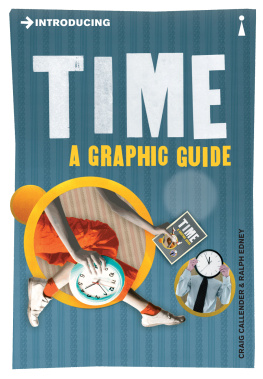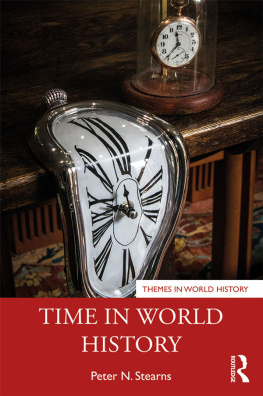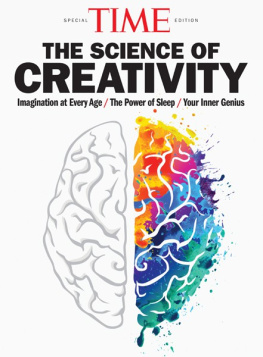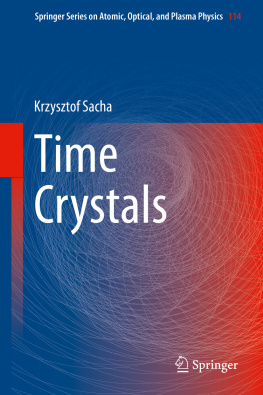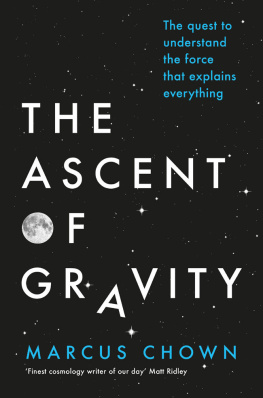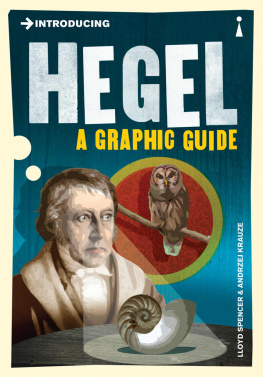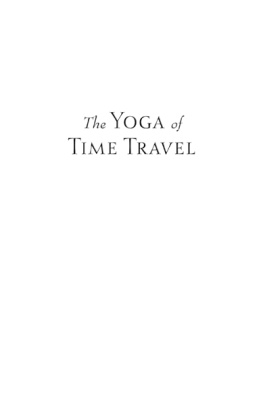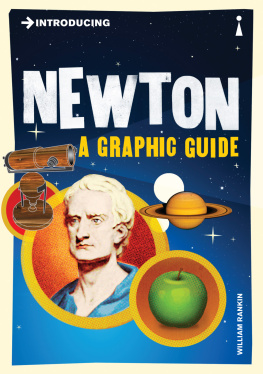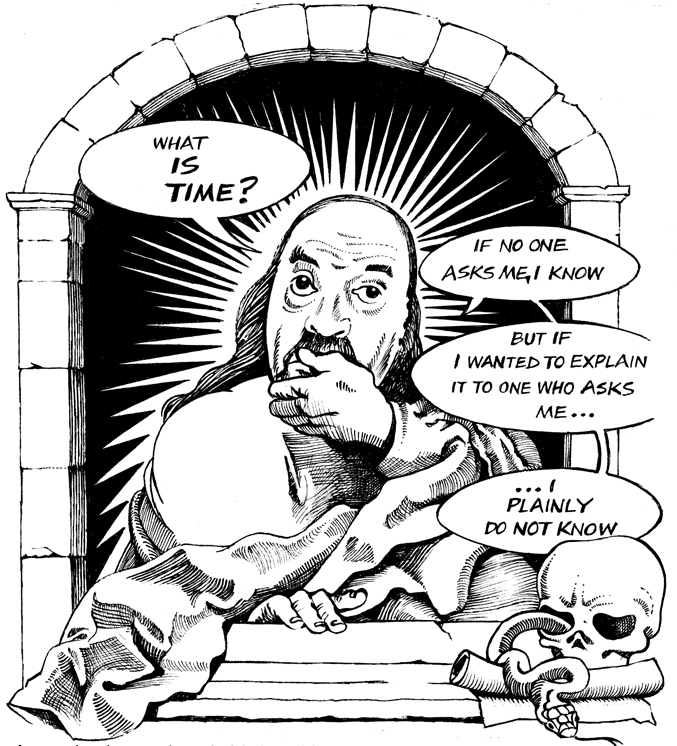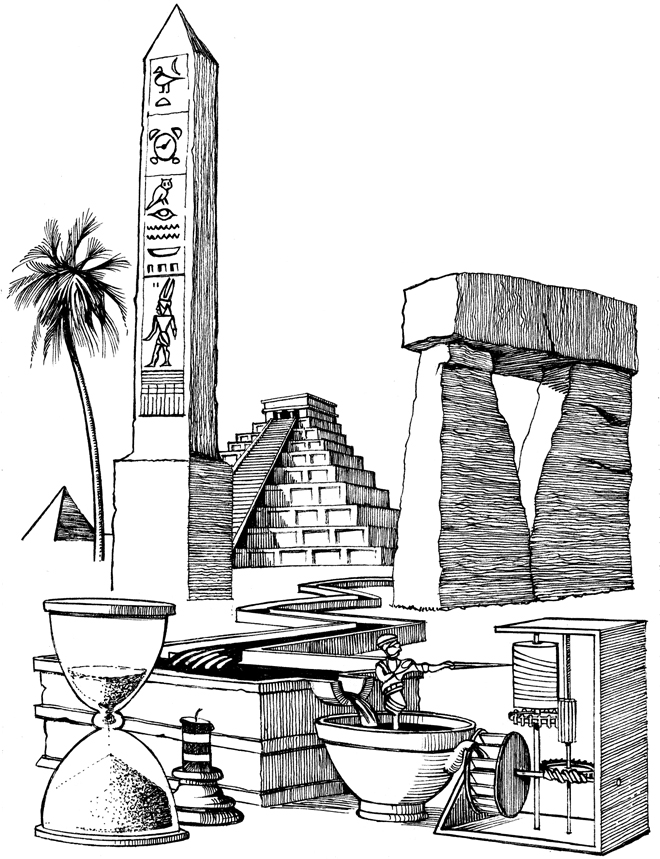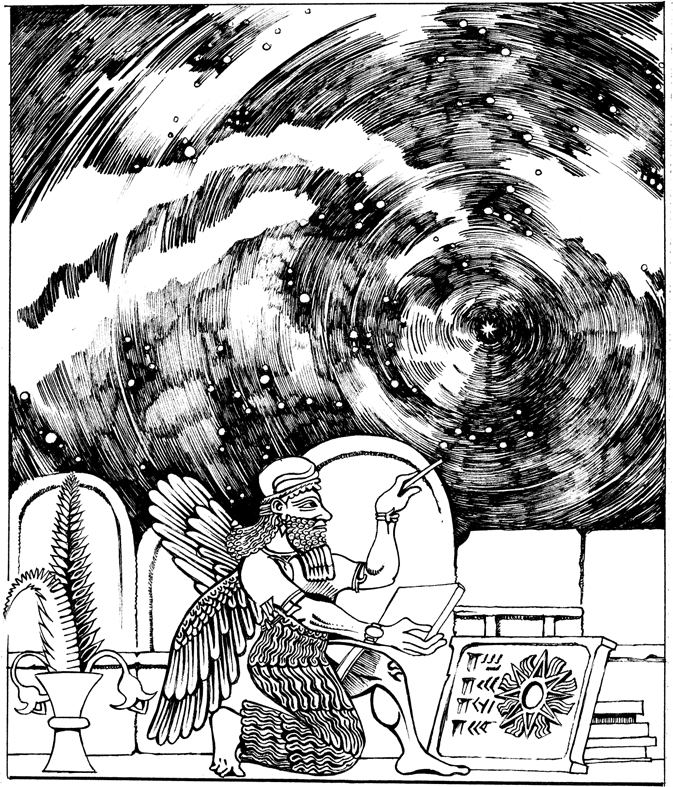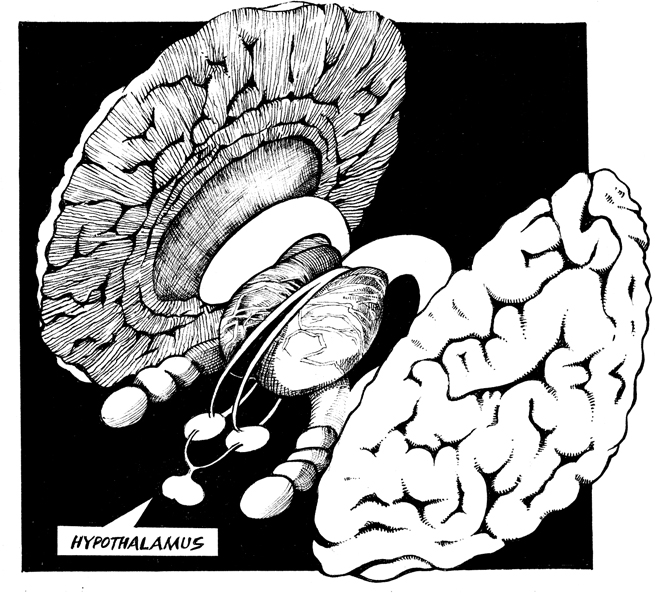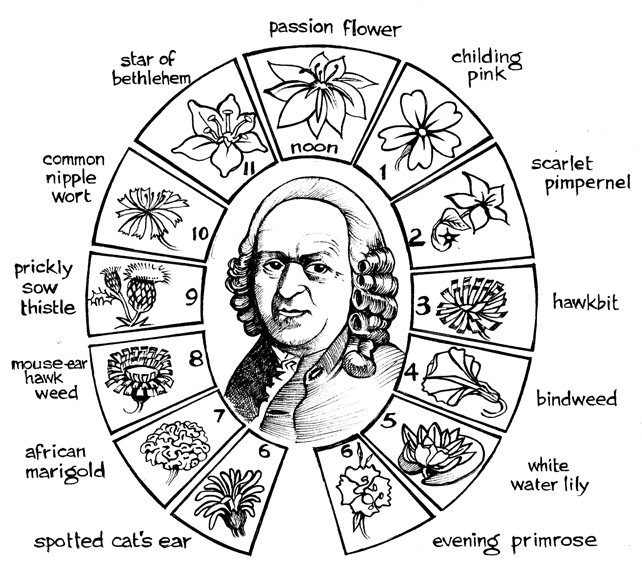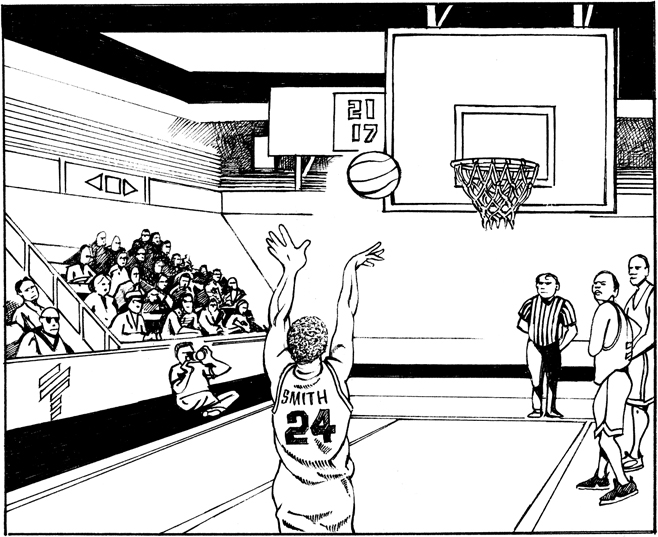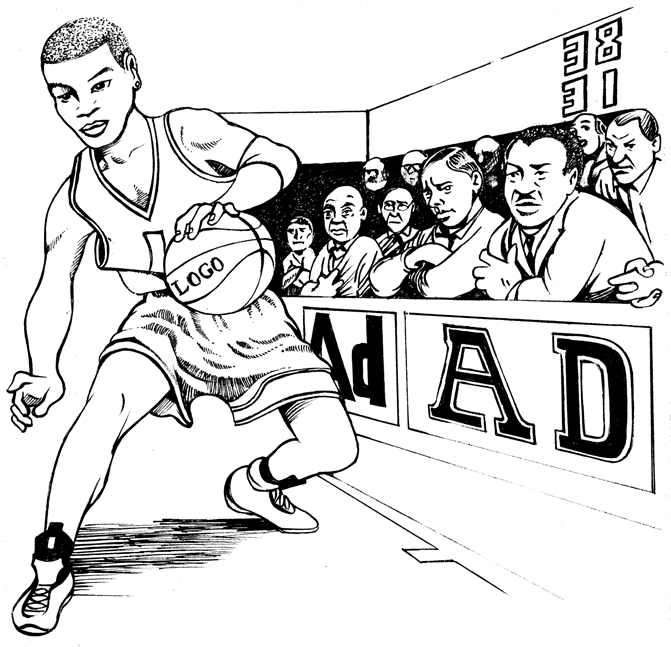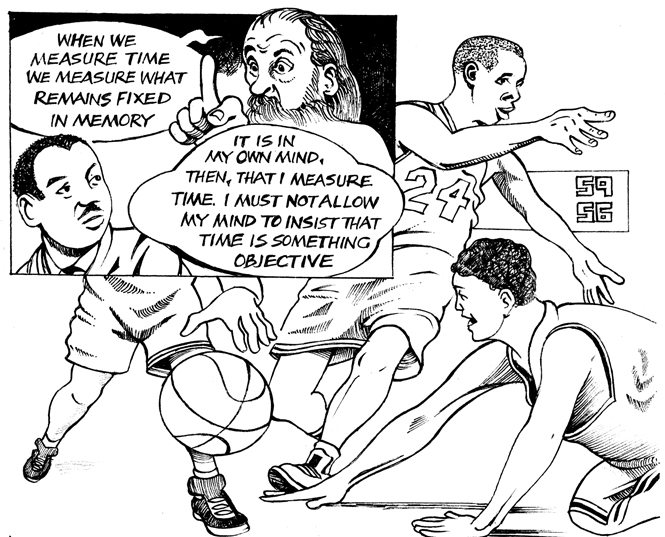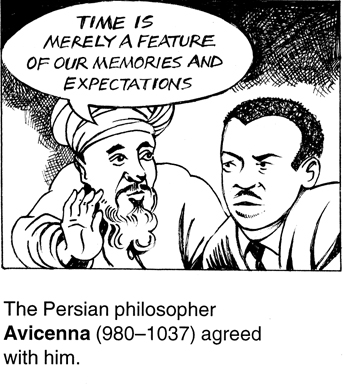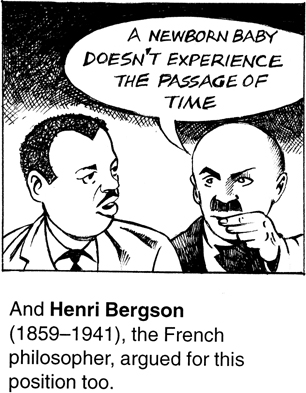Published by Icon Books Ltd, Omnibus Business Centre, 39-41 North Road, London N7 9DP
email:
www.introducingbooks.com
The author has asserted his moral rights.
No part of this book may be reproduced in any form, or by any means, without prior permission in writing from the publisher.
After pointing out all the things he is able to say about time without knowing what it is for instance, that it takes time to say this he admits that he really is in a sorry state, for I do not even know what I do not know!.
WHAT IS TIME? IF NO ONE ASKS ME, I KNOW BUT IF I WANTED TO EXPLAIN IT TO ONE WHO ASKS ME I PLAINLY DO NOT KNOW
Augustine is not alone in his bewilderment. The question of what time is and related puzzles such as whether the past and future are real, whether time travel is possible, and the explanation of the direction of time are among the most intractable yet fascinating questions asked.
All Kinds of Clocks
In everyday life, we are probably most familiar with time from two sources: clocks, and our inner psychological experience of time.
Clocks are everywhere. There are grandfather clocks, watches, alarm clocks, even incense clocks that let you tell the time through scent.
There are also natural clocks.
But clocks existed well before the modern invention of portable artificial ones.
Over four thousand years ago, the Egyptians used obelisk shadow clocks, sundials, and water clocks which measured time by the flow of water passing through a stone vessel.
By 1800 BC, the ancient Babylonians had divided the day into hours, the hour into sixty minutes, and the minute into sixty seconds.
All the great civilizations of the past used the positions of the sun or stars to tell the time.
These clocks were very accurate.
Looking at the stars with the naked eye, an ancient astronomer could tell the time to within fifteen minutes. And anyone can tell roughly the time merely by looking up at the sun.
Biological Clocks
We also carry within us our own biological clocks. The human heart beats 70 times on average each minute. Our moods, alertness, and appetites follow regular patterns, depending on the time of day, the lunar cycle or the season.
Our biological clock seems to be intimately associated with a group of nerve cells in our brains hypothalamus.
HYPOTHALAMUS
These cells are linked to the retina of our eyes and appear to regulate cycles of hormone secretion, our skin temperature and cycles of rest and wakefulness. The hormone melatonin is thought to play a significant role in controlling our daily (circadian) rhythm.
Biological clocks are not special to us. Every creature in nature seems to have them. Some are so good that they have been proposed for human use. The Swedish naturalist Carl Linnaeus (170778) thought we might use flowers as clocks.
Surprisingly, not every biological clock is based on the day, lunar cycle, season or year. The cicada is a remarkable chirping insect that remains underground for 17 years. Then 17 years after going underground, thousands of them emerge at the same time, climb the trees, mate and then die a few hours later, whereupon the 17-year cycle begins again.
Whether natural or artificial, clocks have helped order the patterns of life for as long as human beings have been around. In modern society, they also can cause a lot of stress.
Psychological Time
We also feel time pass. In addition to the physical time measured by various clocks, there is also psychological time. We have memories of the past and anticipations of the future. And we experience temporal durations of different sizes. We are personally, subjectively aware of time passing.
Everyone can guess roughly how much time has passed between two events.
Some people can do this surprisingly well, as if there were little inner clocks in our heads related somehow to the biological clocks.
The interesting thing about these inner clocks is that they seem to speed up or slow down for a person in ways that disagree with other peoples inner clocks.
According to a watch, the trip on a super-fast roller coaster might take only 11 seconds.
11 seconds might seem an eternity to the person on the ride, whereas it may seem like almost nothing to someone waiting. A game of basketball might seem to pass in no time to the child playing it, but forever for the parent watching his twentieth such game in a month!
To begin our investigation into time, its important to see that time is more than merely clocks or the subjective experience of time. Time isnt simply the alarm clock on your nightstand or something solely in your mind. Once we establish this, curious and deep questions will be right around the corner.
Is Time Merely in the Head?
After calming from his initial panic, Augustine argues that time doesnt really exist outside the head.
WHEN WE MEASURE TIME WE MEASURE WHAT REMANINS FIXED IN MEMORY IT IS IN MY OWN MIND, THEN, THAT I MEASURE TIME. I MUST NOT ALLOW MY MIND TO INSIST THAT TIME IS SOMETHING OBJECTIVE
TIME IS MERELY A FEATURE OF OUR MEMORIES AND EXPECTATIONS
A NEWBORN BABY DOESNT EXPERIENCE THE PASSAGE OF TIME
Can this be right? Although people disagree about their feelings of how much time has passed, they also enjoy remarkable agreement about the temporal ordering of events.

